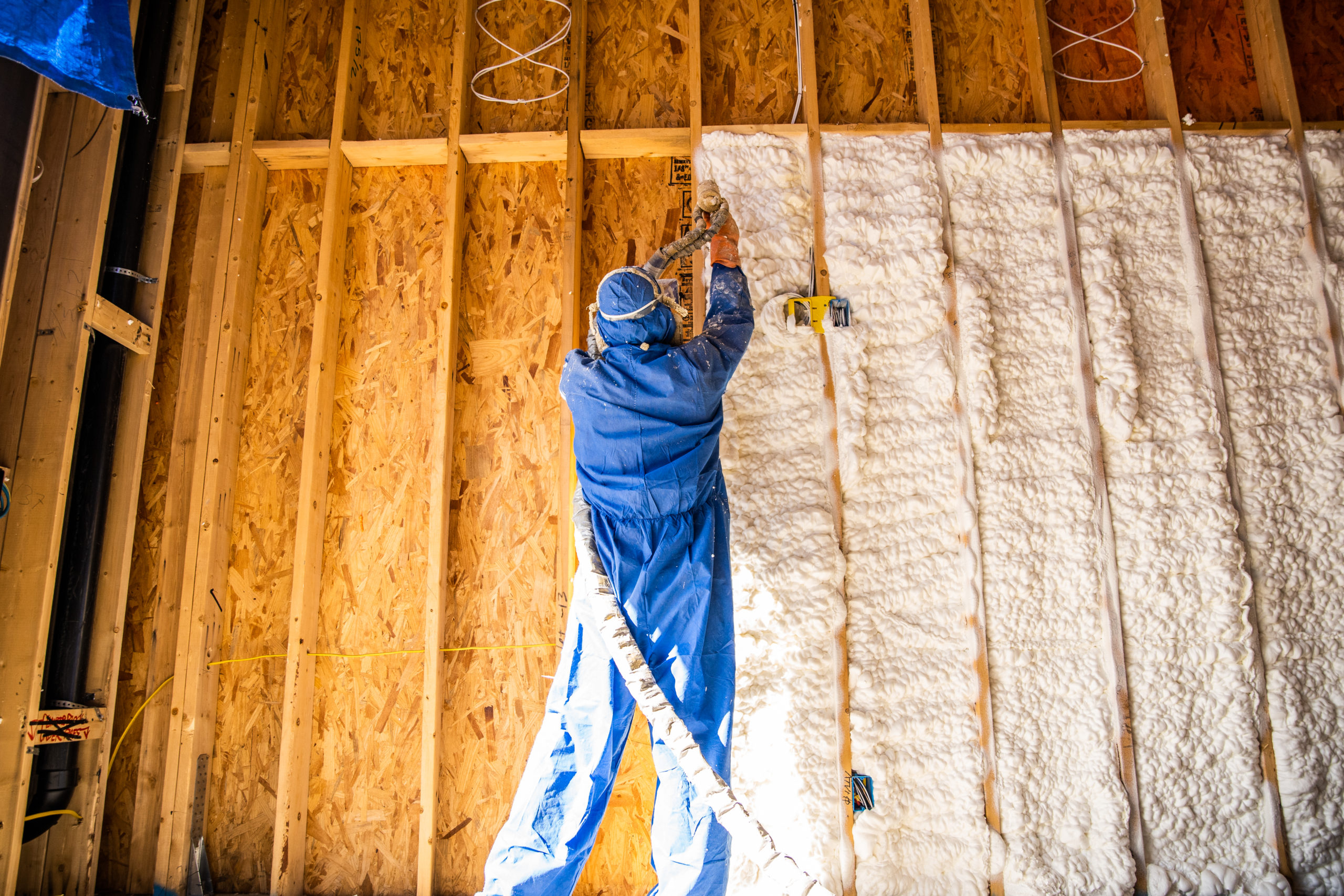Selecting the Right Sort Of Spray Foam for Your Insulation Needs
Spray Foam: The Ultimate Service for Air Sealing and Insulation
Spray foam insulation has emerged as a leading service for effective air sealing and thermal insulation, offering an unique mix of homes that set it apart from traditional approaches. Recognizing the complete range of its benefits, installment procedures, and comparisons with other insulation kinds is vital for making notified decisions.
What Is Spray Foam?
Spray foam is a functional insulation product that combines the concepts of air securing and thermal resistance to improve energy performance in structures. Composed largely of polyurethane or various other similar substances, spray foam is used as a liquid that increases upon call with surfaces, developing a strong, continuous layer of insulation. This one-of-a-kind property permits it to fill up gaps, splits, and voids that typical insulation products may forget, supplying an exceptional air seal.
There are two major types of spray foam: open-cell and closed-cell. Open-cell spray foam is lighter and extra versatile, providing superb noise absorption and a lower R-value per inch - Spray Foam. In contrast, closed-cell spray foam is denser, giving a greater R-value, moisture resistance, and included structural honesty to building parts
The application process typically entails specialized tools, guaranteeing a smooth application that sticks to different substratums, including timber, metal, and concrete. This flexibility makes spray foam appropriate for both brand-new constructions and retrofitting existing structures. Its capacity to create an impermeable barrier dramatically contributes to minimizing power consumption and enhancing interior air quality, thus making it a recommended choice among building contractors and property owners alike.
Benefits of Spray Foam Insulation
One of the most considerable benefits of spray foam insulation is its remarkable capability to develop a continual air barrier, which effectively lessens energy loss. Unlike conventional insulation materials, spray foam broadens to fill up spaces and fractures, making sure that air leak is dramatically lowered. This particular not just improves energy effectiveness however also results in lower utility costs with time.
In addition, spray foam insulation gives remarkable thermal resistance, adding to a much more stable indoor setting. Its high R-value per inch permits efficient insulation in restricted spaces, making it perfect for attic rooms, wall surfaces, and crawl rooms. Moreover, the moisture-resistant buildings of spray foam assistance stop mold and mold development, promoting much healthier living problems.
One more vital benefit of spray foam insulation is its sound-dampening qualities (Spray Foam). It properly lowers sound transmission between areas, developing a quieter and a lot more comfortable home setting. The longevity of spray foam likewise stands apart, as it does not droop or clear up over time, keeping its performance throughout its life-span
Exactly How Spray Foam Works
Recognizing exactly how spray foam insulation functions is vital for appreciating its efficiency in air securing and thermal resistance. Spray foam insulation consists of 2 primary parts: isocyanate and polyol resin. When these parts are blended, they undertake a chain reaction that creates the material to broaden swiftly, creating a thick foam that fills splits, gaps, and tooth cavities.
As the foam increases, it follows surfaces, developing an impermeable seal that significantly decreases air seepage. This particular makes spray foam insulation highly efficient at preventing drafts and wetness infiltration, which can cause energy loss and damages with time. Additionally, the closed-cell variation of spray foam provides exceptional thermal resistance because of its inflexible framework, effectively minimizing warm transfer.
The unique buildings of spray useful content foam allow it to adjust to irregular surface areas, ensuring comprehensive coverage and a seamless barrier. Therefore, spray foam insulation not just boosts power performance however likewise adds to enhanced indoor air quality by decreasing the accumulation of allergens and toxins. Eventually, understanding the mechanics behind spray foam emphasizes its duty as a remarkable option for insulation and air sealing in both business and property applications.
Installment Process Overview

Prior to installment, the space needs to be properly cleaned up and prepped, ensuring that surfaces are cost-free from particles, dirt, and moisture. This step is important due to the fact that impurities can compromise adhesion and general performance. When the location is prepared, the application includes blending both parts of the spray foam, which increases upon call and loads voids effectively.
Trained professionals should conduct the installation, using specialized equipment to make sure uniform protection and optimal density. Security safety measures, including using protective gear and ensuring proper air flow, are vital during this process. After application, the foam typically cures promptly, creating a strong barrier that enhances power performance.
Contrasting Spray Foam to Conventional Insulation
When assessing insulation options, spray foam insulation stands out in contrast to standard materials YOURURL.com such as fiberglass and cellulose. Among the key advantages of spray foam is its exceptional air securing capacities. Unlike fiberglass and cellulose, which can enable air infiltration, spray foam expands upon application, filling holes and spaces to produce an airtight seal. This results in boosted energy efficiency, as less warmed or cooled air leaves the home, leading to reduced utility costs.
In addition, spray foam offers a higher R-value per inch than traditional insulation kinds, providing more reliable thermal resistance in a thinner account. This characteristic is particularly advantageous precede with minimal tooth cavity depth. Furthermore, spray foam is immune to wetness and mold growth, which can be a significant interest in cellulose and fiberglass, especially in humid settings.
Nevertheless, spray foam insulation commonly carries a higher ahead of time expense than its typical counterparts. House owners have to weigh this preliminary financial investment versus long-term power financial savings and performance advantages. Ultimately, while both insulation types offer their objective, spray foam becomes a much more sophisticated remedy for modern-day insulation needs, especially in regards to air securing and thermal efficiency.

Conclusion
In summary, spray foam insulation represents a highly effective solution for achieving ideal air sealing and thermal resistance. Its one-of-a-kind properties, including wetness resistance and sound dampening, make it suitable for numerous applications in both brand-new buildings and retrofitting jobs (Spray Foam). The initial prices may be higher contrasted to standard insulation materials, the lasting advantages, such as considerable energy financial savings and enhanced indoor air top quality, warrant the investment and underscore its worth in contemporary building techniques.
Spray foam insulation has actually emerged as a leading remedy for efficient air sealing and thermal click here to find out more insulation, providing a distinct mix of properties that establish it apart from conventional methods.Spray foam is a functional insulation material that incorporates the concepts of air securing and thermal resistance to improve energy performance in structures.When examining insulation options, spray foam insulation stands out in contrast to conventional products such as fiberglass and cellulose. Eventually, while both insulation types serve their objective, spray foam emerges as an extra sophisticated solution for contemporary insulation needs, especially in terms of air sealing and thermal effectiveness.
In summary, spray foam insulation represents a very effective remedy for achieving optimum air sealing and thermal resistance.